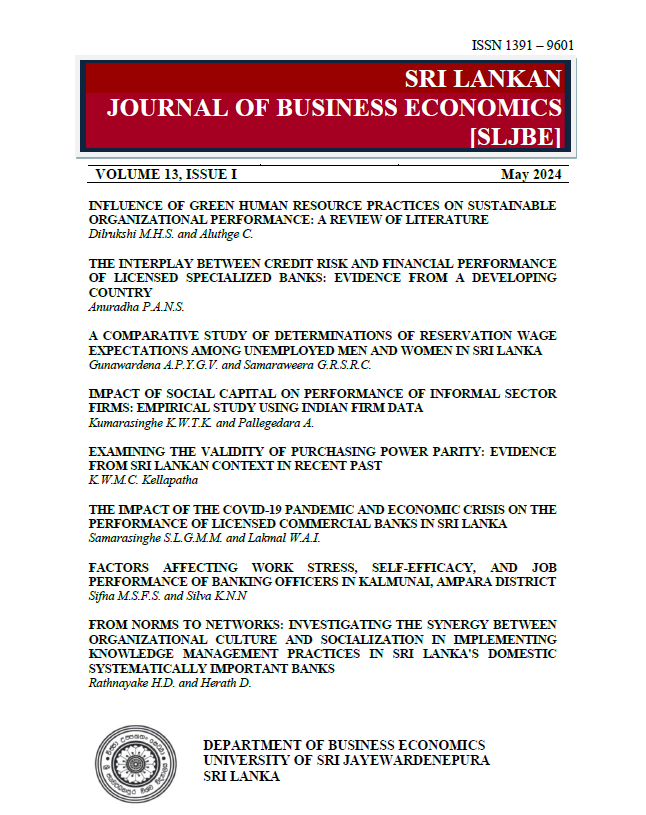THE IMPACT OF THE COVID-19 PANDEMIC AND ECONOMIC CRISIS ON THE PERFORMANCE OF LICENSED COMMERCIAL BANKS IN SRI LANKA
DOI:
https://doi.org/10.31357/sljbe.v13.7508Abstract
Sri Lanka faced an array of incidents starting from the Easter Sunday attack in 2019 to COVID-19 pandemic and the Economic Crisis which caused disastrous effects on the economy. Despite the policy measure taken, the banking sector was severely affected by soaring Non-Performing Loans (NPLs) levels and dwindling profits. Therefore, the main objective of this study is to evaluate the impact created by the series of adverse economic and social issues from 2019 on the performance of the banking sector in terms of profitability and NPLs using a sample of 12 licensed commercial banks. The data were collected from secondary sources such as annual reports issued by the banks and the Central Bank for the period 2013-2022. The impact of the Easter attack, Pandemic, and Economic Crisis are referred to using a dummy variable, inflation, Gross Domestic Product (GDP) growth rate, and interest rate are used to measure the impact of the macroeconomic environment on the banking sector performance and capital adequacy ratio was used as a control variable. Return on Equity, Return on Assets, and NPLs were used to measure the bank's performance. The results of the random effects panel regression models suggest that there is a significant impact of the Pandemic, Economic Crisis, and GDP growth rate on the performance of the banking sector. This research indicates that a country like Sri Lanka needs to take aggressive policy measures to face these adverse situations. It is required to take credit risk mitigation measures and provide quality loans to curtail the adverse impact caused by the NPLs.

